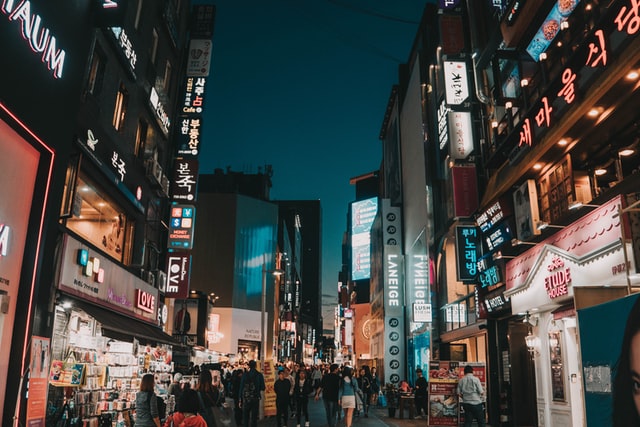Stepping into a completely foreign culture is one of the most challenging aspects about life in South Korea, but fear not, we will do our best to help you overcome the culture shock.
South Korea is a country with thousands of years of history, tradition and culture that are all an integral part of the Korean way of life. Culture shock is a very real thing and can leave you feeling overwhelmed and lost while simultaneously feeling excited and curious. These kinds of fluctuating emotions are a natural reaction to the extreme change you face when you move to a new country, and it can happen at various times during your life abroad.
Living in Another Culture
Tough there is a growing population of foreigners, Westerners are still the vast minority of people who populate this seemingly small country. At times it will seem like you’re standing out like a sore thumb, while other times you’ll feel like you’re are lost in the crowd. Remember: you have no connection to Korean history, you speak little or none of the language, and you understand very little, if anything, about Korean culture or way of life. Despite what you might think,recognizing the differences between your lifestyle and that of a Korean person is necessary, even if you can’t understand or appreciate them.
Judging by the very condensed geographical space and the amount of people who occupy it, Koreans perception of personal space and awareness of others comfort zones are almost nonexistent. Believe it or not this, will be a big part of your daily life in Korea and something worth mentioning to you here. It often makes foreigners feel uncomfortable, claustrophobic and pushed around, as we have very different ideas of “personal space” in the West. Developing relationships with Koreans can help bridge the gap between your Western norms, and Korean cultural and social norms. It will also be helpful in understanding other very important cultural practices you will partake in at your work place and in your day to day activities. For example, Koreans don’t wear their shoes inside their homes and many other places such as offices, restaurants, and schools. Shoes are considered to be extremely dirty, and it’s a profound sign of disrespect to enter someone’s home or space with your shoes on. Slipper sandals, inside shoes, or socks are worn instead of outdoor footwear. It is also considered disrespectful to point the sole of your foot at another person, or put your feet on seats, tables, handrails, etc. This is one example of many of the helpful things to be aware of before stepping off the plane in Seoul.
Representing Your Own Culture
There are a growing number of foreigners who are traveling, visiting or working in Korea. For the most part, Westerners are generalized under one seemingly unchangeable perception by the Korean people. Because of unfortunate events and expats who have damaged the face of all Westerners by inappropriate or criminal behavior, it is very important to remember that you don’t only represent yourself and your country, but all Westerners in general. Your words, actions, interactions, work ethic and regard for Korean people and their culture have a lot of weight in re-establishing the reputation of all foreigners. “Be the change you hope to see in the world” and let your presence in Korea be a positive one.
Learning The Korean Language
Learning the Korean language, or at least parts of, not only will enable you to be more independent in Korea, but will allow you to build more relationships, explore less-traveled areas of the country and most importantly, enrich all the interactions you have with Korean people. By taking steps towards learning more about them, you’ll notice how immediately Koreans become more genuinely helpful and less skeptical about your motives for being in their country. Though it is a difficult task and one that many aren’t willing to take on, the rewards will be well worth your efforts. Even learning key words, phrases, numbers and sayings will significantly help you navigate through daily life.

